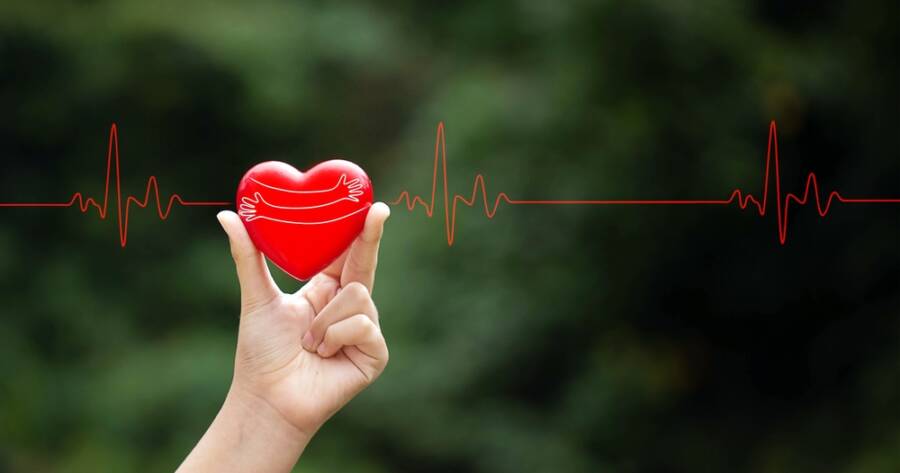Atrial fibrillation (Afib) is a common heart condition characterized by an irregular and often rapid heartbeat. Understanding the factors that may trigger or exacerbate Afib episodes is crucial for managing the condition effectively. While some triggers are well-known, others might surprise you. Explore seven unexpected Afib triggers that individuals could consider avoiding to better control their symptoms and maintain heart health.
1. Dehydration: An Overlooked Catalyst
Hydration plays a vital role in maintaining heart rhythm stability. Dehydration can lead to an imbalance of electrolytes in the body, potentially triggering Afib episodes. Electrolytes, such as potassium and sodium, are essential for conducting electrical impulses in the heart.
Therefore, ensuring adequate fluid intake, especially during hot weather or while exercising, may help in preventing dehydration-induced Afib. Incorporating electrolyte-rich beverages or foods into your diet might offer additional support in maintaining balanced body chemistry.
2. Excessive Caffeine Intake
Caffeine is a stimulant found in coffee, tea, energy drinks, and some medications. For people predisposed to Afib, high caffeine consumption might exacerbate symptoms by increasing heart rate and promoting irregular rhythms.
While moderate caffeine intake may not affect everyone with Afib, those experiencing sensitivity should consider limiting their consumption. Opting for decaffeinated beverages or reducing the overall number of caffeinated drinks per day could help minimize potential triggers.
3. Alcohol Consumption
Alcohol is another common trigger that’s known to potentially initiate or worsen Afib episodes. Excessive drinking, particularly binge drinking, can provoke palpitations and irregular heartbeats due to changes in the cardiovascular system.
Light to moderate alcohol consumption may still trigger episodes for some individuals. Paying attention to your body’s reactions to alcohol and consulting with a healthcare provider about safe limits can support proactive management of Afib.
4. Sleep Apnea: A Hidden Link
Obstructive sleep apnea (OSA) is a condition characterized by interrupted breathing during sleep. This disruption often results in decreased oxygen levels, placing stress on the cardiovascular system and potentially serving as an Afib trigger.
If Afib symptoms are accompanied by snoring or excessive daytime sleepiness, investigating sleep quality with a healthcare professional might be beneficial. Treating sleep apnea through lifestyle changes or medical interventions, such as continuous positive airway pressure (CPAP) therapy, could help reduce the frequency or severity of Afib episodes.
5. High-Stress Levels
Chronic stress and anxiety could negatively impact heart health, potentially leading to Afib episodes. The body’s stress response can provoke the release of adrenaline, raising both heart rate and blood pressure.
Incorporating stress-reduction techniques like mindfulness meditation, yoga, or deep breathing exercises into daily routines may support emotional well-being and reduce Afib risks. Recognizing stressors and seeking support when needed also fosters a balanced lifestyle.
6. Certain Medications and Supplements
Some medications and supplements, even if used for unrelated health issues, might inadvertently trigger Afib. Cold and allergy medications containing pseudoephedrine can increase heart rate, posing a risk in sensitive individuals.
Similarly, high doses of certain supplements, such as fish oil, may have unpredictable effects on heart rhythm in some cases. Always discuss any new medications or supplements with a healthcare provider to ensure they align with Afib management plans.
7. Overeating: An Unexpected Stressor
Overeating, particularly heavy meals, might trigger Afib in some individuals due to increased blood flow demands and shifts in body chemistry. Large meals can also induce discomfort and pressure on the diaphragm, potentially affecting heart rhythms.
To minimize this risk, consider practicing mindful eating by consuming smaller, balanced meals throughout the day. Eating slowly and being mindful of portion sizes can help reduce the likelihood of post-meal Afib episodes.
Empowering Afib Management
Effectively managing atrial fibrillation involves understanding and avoiding potential triggers that could exacerbate symptoms. By recognizing less obvious triggers such as dehydration, caffeine, alcohol, and overeating, individuals with Afib gain more control over their heart health.
Integrating lifestyle changes and working closely with healthcare providers enables proactive management of the condition. Regular consultations, personalized treatment plans, and preventive measures foster well-being and empower individuals to live fulfilling lives despite the challenges imposed by Afib.
